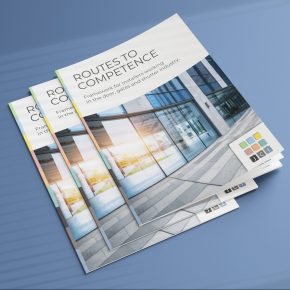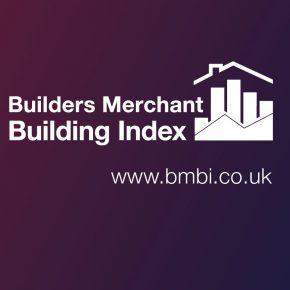
How to layout your construction CV
With an ongoing shortage of construction workers, talented employees in this industry are in high demand. So if you’re able to sell yourself and prove you have the right industry skills and experience, landing your next construction role will be a piece of cake.
This all begins with a clearly laid out CV, which highlights your key strengths and shows why you’re the right person for the job. Read on to find out how you can achieve this.
Begin with a catching personal summary
Your personal summary (also known as a personal statement or personal profile) is a paragraph that sums up your strengths, level of experience and aims. It’s supposed to lead and introduce your CV, to convince the hiring manager to read on.
This means you need to place it below your personal details, at the beginning of your CV. Keep it short and to the point for maximum impact – ideally around two to three sentences.
Lead with your strengths
When writing your CV, be sure to focus on your strengths, whether that’s years of experience, a recent qualification in the industry or a keen hard-working attitude.
What’s more, make sure you tailor these for the role you’re applying to. You need to highlight that you meet the requirements the employer is after – for example, they may want you to have a CSCS card or Personal Protective Equipment.
Refer back to the job description for this information and look at the type of individuals they want. For example, if this is someone who works well in a team, or has prior team leading experience, you need to describe how you can do this.
Make use of bullet points
Using bullet points is a great way to emphasise your key strengths and break up the wordiness of your CV. After all, they make it easier for the hiring manager to read and pick out key information more quickly.
So, using bullets for the information you really want to highlight is a great technique to stand out. These work best for listing your roles and responsibilities or skills.
Avoid unusual formatting
You want to stand out – but in a good way, not as the person with the confusing CV. So be sure to keep formatting simple with a traditional font such as Calibri, size 11-12 font and blank ink.
At all costs, avoid colours, cluttered capitals and too much italic or bond font. While bolding or underlining titles can be helpful – too much can just distract from your skills and experience.
What’s more, aim to keep your CV to two A4 pages or below. Too much information risks boring the reader and is unnecessary. To help with this, remove any old irrelevant roles, such as your Saturday job from five years ago. And the ‘references available on request’ line can be cut too – employers will ask for them if they need them.
Finished your CV? Here’s our top tips for landing a construction job
Keep to the point: Don’t risk waffling on or repeating the same points more than once. Hiring managers are busy people and they need quick, easy information to see why you’re right for the role.
Use data to support your achievements: Numbers, figures or anything that proves you can provide results is a great way to attract the hiring manager’s attention. For instance rather than saying ‘you managed a team’, say, ‘I managed a team of five workers to ensure we completed a project on a strict deadline’.
Tailor your application: This is the golden rule of job applications. Companies want to see how relevant your skills are for their workplace – not just any job in the industry. So make sure you do your research on the company and tailor your application to their needs.
Upload your CV on a job board: Upload your CV to a job board to search hundreds of suitable construction jobs. Plus you can open yourself up to being headhunted by recruiters in your industry.
Never lie: It can be tempting to lie on an application, especially if you feel you lack some of the requirements. But this is a big no – if caught, you could be ruled out for the role completely.
Final thoughts
How you choose to lay out your CV is important, especially when it comes to sending the right message to the hiring manager. Follow our advice and you’ll be able to highlight your strengths and key achievements to land a job in the construction industry in no time.
Latest news

25th April 2024
ADSA: Competence Initiative Makes Progress
The Joint Competency Initiative (JCI), in which the Automatic Door Suppliers Association (ADSA) is involved, is finalising its first framework for installers within the door, gates and shutter industry.
Posted in Access Control & Door Entry Systems, Architectural Ironmongery, Articles, Building Associations & Institutes, Building Industry Events, Building Industry News, Building Products & Structures, Building Regulations & Accreditations, Building Services, Continuing Professional Development (CPD's), Doors, Facility Management & Building Services, Health & Safety, Innovations & New Products, Publications, Research & Materials Testing, Restoration & Refurbishment, Retrofit & Renovation, Security and Fire Protection, Site Preparation
25th April 2024
BMBI: Value sales in first two months were -3.4% down
The latest Builders Merchant Building Index (BMBI) report shows builders’ merchants’ value sales were down -4.7% in February compared to the same month a year ago.
Posted in Articles, Bathrooms & Toilets, Bathrooms, Bedrooms & Washrooms, Bricks & Blocks, Building Associations & Institutes, Building Industry News, Building Products & Structures, Building Services, Civil Engineering, Concrete, Cement, Admixtures, Drainage, Floors, Hard Landscaping & Walkways, Interior Design & Construction, Interiors, Landscaping, news, Paints, Paints, Coatings & Finishes, Plant, Equipment and Hire, Plumbing, Posts, Publications, Research & Materials Testing, Restoration & Refurbishment, Retrofit & Renovation, Sustainability & Energy Efficiency
24th April 2024
The lowdown on Origin’s New Soho Offering
Origin’s Soho External Door is the first launch in its new generation of products, setting a higher standard for the fenestration industry.
Posted in Access Control & Door Entry Systems, Aluminium Products, Architectural Ironmongery, Articles, Building Industry News, Building Products & Structures, Building Systems, Doors, Innovations & New Products, Posts, Restoration & Refurbishment, Retrofit & Renovation, Security and Fire Protection
24th April 2024
Mitsubishi Electric welcomes new code of conduct for smart appliances
Mitsubishi Electric welcomes a new code of conduct on energy smart appliances which the European Union (EU) announced yesterday at the Hannover Fair in Germany.
Posted in Air Conditioning, Articles, Building Industry Events, Building Industry News, Building Products & Structures, Building Regulations & Accreditations, Building Services, Exhibitions and Conferences, Facility Management & Building Services, Heating Systems, Controls and Management, Heating, Ventilation and Air Conditioning - HVAC, Plumbing, Retrofit & Renovation, Seminars, Sustainability & Energy Efficiency
 Sign up:
Sign up: